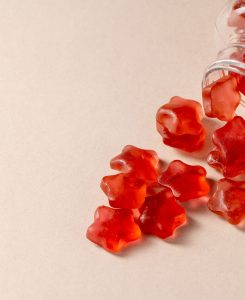Want to maximise your health? Then take a look at our guide to the top health products every healthy home needs, says Charmaine Yabsley
Want to maximise your health? Then take a look at our guide to the top health products every healthy home needs, says Charmaine Yabsleysupplements available. From omega 3s to vitamin D, many of us will be confused as to what we should be taking to optimise our health. We spoke to the experts to get their top recommendations…
Omega 3s
Why: “Omega 3 oils are known for improving joint suppleness, but they’re not just for the older generation,” says Jon Langton, product specialist at myprotein.co.uk. “These essential fatty acids also reduce the risk of heart disease, the incidence of strokes and improve depression. More importantly, they play an active role in fat loss.“Studies have shown that essential fatty acids (EFAs) help to convert carbohydrates into energy, whilst correctly using fat for energy, rather than storage. Best of all, omega 3s can not only help you live longer, but help you look younger, for longer too. “To keep ageing and poor health to a minimum, increase your levels of omega 3,” advises skincare guru Dr Nicholas Perricone (perriconemd.com ).
So what is this wonder ingredient? Omega 3s (and omega 6s) are termed essential fatty acids (EFAs) because they are critical for good health. However, the body cannot make them on its own. For this reason, omega 3s must be obtained from food, thus making outside sources of these fats ‘essential’. Concerned about mercury levels in your seafood? Stick to wild pacific salmon, shrimp, haddock and mid- Atlantic blue crab.
Where to buy: Try Perricone MD Omega 3 (£30 for 30 days from perriconemd.com ), Mega Omega (£12.95 for 500ml from myprotein.co.uk ) or NutraSea Liquid (£14.99 for 140ml from nutricentre.com).
Vitamin D
Why: Due to our northern latitude, the UK has a poor level of sunlight during the winter and spring months, which can affect more than our seasonal mood. A study of 13,000 people found a 26 per cent extra risk of death after nine years among those with the lowest vitamin D levels compared with the highest. Investigators from the Albert Einstein College of Medicine in New York said their findings, reported in The Archives of Internal Medicine, boosted the case for improving people’s levels of vitamin D, which is found in salmon, tuna and other oily fish and produced in the body in response to sunshine. “The lack of sunshine we directly receive in winter cuts off our vitamin D supply, since we make the vitamin in response to sunlight,” says Dr Carrie Ruxton, independent advisor to the Health Supplement Information Service (HSIS), visit hsis.org. A daily vitamin D supplement of 5-10 mcg can help maintain optimal levels during the winter. “If you have an office job and rarely see the sun, consider taking vitamin D all year round,” says Dr Ruxton.
Where to buy: Try Nature’s Plus Source of Life Gold (£22.60 for 90 capsules, nutricentre.com ) or visit your local health food store.
Iron supplements
Why: Around one in three women in the UK suffers from anaemia, a deficiency of red blood cells caused by an iron deficiency. If you’re constantly tired, forgetful and suffer from dizziness, it may be that you need to top up your iron levels Popeye-style. While you may be tucking into steaks and platefuls of spinach, your body still may not be getting enough iron, as your body only absorbs 1mg for every 10mg to 20mg eaten.
Where to buy: Liquid supplements are much easier for the body to absorb. Try Spatone (£6.49 for a month’s supply from spatone.com ), which is unlikely to cause constipation. Don’t take iron supplements with tea or wine, however, because they contain tannins – chemicals which bind to iron in the gut, preventing it from being absorbed into the bloodstream.
Multivitamins
Why: “This is a simple, low cost way to top up dietary intakes. Many women are low in essential vitamins and minerals, especially selenium, magnesium and iron,“says Dr Ruxton. And while most experts agree that the best way to a healthy lifestyle is a balanced diet of fruit and vegetables, it was reported in The Annals of Internal Medicine that a daily multivitamin pill can cut the risk of catching a cold and other common ailments by half. “A supplement offering intakes at or slightly below the RDA (recommended daily allowance) is best,” says Dr Ruxton.
Where to buy: Try Solgar’s Formula VM-75 (£10.82 for 60 caps, from solgar.co.uk) .
Prebiotics
Why: Although they sound very similar, probiotics and prebiotics do a very different job. “Prebiotics are needed to feed positive bacteria in the gut which then boosts the immune system,” says Glenn Gibson, Professor of Food Microbiology at the University of Reading, and specialist in the field of prebiotics. “As over 60 per cent of the immune system is found in your gut, this is especially important. Prebiotics can be particularly beneficial for those over 55 as immunity naturally decreases with age and also for those hoping to keep colds and flu at bay.” Prebiotics are also worth trying if you need to take antibiotics as these can sometimes cause diarrhoea in many people. Also, if you are going into hospital, it’ll give your body a good chance of fending off infections. “Prebiotics are found naturally in foods such as bananas, leeks, onions, garlic, asparagus and artichokes, but many people will need to include a supplement in their diet to ensure they’re getting the right amount each day.”
Where to buy: Try Bimuno (£6.99 for 30 sachets from bimuno.com ), Klaire Laboratories Ther-Biotic Complete (£34.03 for 60 veg caps from nutricentre.com ).
Almonds
Why: A handful of almonds – about 23 in total – could improve your heart health, skin and immune system. How? According to a study by King’s College in London it seems that their fibre structure may help block absorption of fat and carbohydrates and leave you feeling fuller for longer. “Yes, they do give us fat, but most of it is monounsaturated, the type which is good for our hearts. And of course, almonds are naturally low in salt and sugars,” says Liz Earle, in her book, New Vital Oils (£8.99, Vermilion). Almonds are also rich in essential minerals, such as magnesium (good for energy production and bone health) potassium (controls the balance of fluids in the body and may help lower blood pressure) and calcium (keeps bones strong). And the benefits don’t end there. Packed within the brown skin and creamy nut itself are high amounts of vitamin E, necessary for smooth-looking skin and heart health, along with calcium for strong bones and zinc for a robust immune system. But make sure you eat them skin and all. A study from Tufts University suggested that the nutrients found in almonds and in their skin together may offer a significantly higher amount of protection.
Where to buy: Visit almondboard.com or your local supermarket.
Probiotics
A daily dose of probiotics can help reduce seasonal allergies
Why: Probiotics certainly aren’t new, and it seems that already we Brits are ahead of the game when it comes to our gut health. Around 60 per cent of us regularly buy probiotics, which are the actual ‘good’ bacteria. Eating foods that contain probiotics improves the ratio of ‘good’ bacteria to ‘bad’ in the gut, yet most of us miss out on such a diet. But despite their widespread appeal and acknowledged usefulness, the jury is still out on the effectiveness and usefulness of a probiotic. However, most health experts agree that for many people a probiotic is a safe and advisable way to keep the gut healthy. “Antibiotics, travelling abroad and eating low-fibre diets all have a negative effect on our gut bacteria, leading to bloating and irregular bowel movements,” says Dr Ruxton. One study found that probiotics help the body respond better to flu injections, while another found that a daily dose can help reduce seasonal allergies. “A daily probiotic can help redress the balance and can be a good foundation for better health.”
Where to buy: Your local supermarket.
Arnica
Why: It’s one of the top five homeopathic products advised by the NHS and for good reason. “Top Harley Street plastic surgeons all prescribe this product to their patients before and after surgery because they know that it greatly reduces bruising,” says world-leading naturopathic physician, Dr Harald Gaier (drgaier.com ). “Used topically, it’s an ideal first aid remedy to help prevent bruises developing.” And it’s not just useful post-injury – arnica can help prevent stiffness and soreness before you exercise. In one study of 82 marathon runners, those who took five arnica tablets twice a day (the day before, the day of and three days after their race) reported less soreness than those given a placebo treatment. Despite much widespread derision regarding homeopathic remedies, an article published in The Pharmaceutical Journal reported that “there are significant pharmalogical data to justify the usage of arnica”.
Where to buy: Nelsons Arnicare Arnica Cream (£4.35 for 30g from nelsons.co.uk ) or Weleda massage balm with arnica, (£5.95 for 50ml from weleda.co.uk ).
Article by
Charmaine Yabsley
Article by
Charmaine Yabsley























